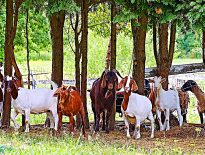Weekly Roundup, 3rd February 2020

We begin today’s Weekly Roundup in the FT with John Lee, who was writing about small-cap stocks.
John Lee
It was another thin week for news in the mainstream media.
John Lee provided his regular update on his small-cap portfolio.
He was in a good mood:
The overwhelming Johnson victory was clearly the best possible news for investors — we should have five years of a broadly free enterprise, pro-business, pro-investor government to look forward to, free of the horrors of Corbynism.
I couldn’t agree more.
John was fully invested through the election, having moved his recent takeover proceeds (from Charles Taylor and Tarsus) into high-yielding Aviva and Legal & General.
- But now he has a new takeover (of property group Hansteen by a private equity group) to deal with.
Other holdings mentioned include Treatt, Concurrent Technologies Christie Group and Appreciate.
- Disappointing holdings include Nichols and Air Partner.
John has also taken a punt on Fevertree, whose price has fallen from £40 to £15 recently.
US market
Unusually for him, Adventurous Investor David Stevenson looked at the distinctly unadventurous topic of the S&P 500.
- It was up 25% last year and is up 60% over five years, compared with just 11% for the UK.
David expects the good times to continue:
The US is the deepest, broadest, most liquid market for larger global businesses, especially in tech-related sectors.
In a world flooded with central bank liquidity, most of the freshly minted dollars find their way into US accounts and US risky assets, in other words local US equities.
David mentioned two slightly more adventurous alternatives to a standard ETF:
- iShares has a currency-hedged version (at 0.10% pa)
- xTrackers (Deutsche Bank) has an equal-weighted version (at 0.25% pa)
Note that in a roaring bull market led by a few tech stocks, equal-weight will underperform.
- But over the long-run, it should outperform (almost any alternative to market-cap weighting will outperform in the long run – equal weight is just the simplest version).
David also mentioned the Pershing Square hedge fund, headed by Bill Ackman (which I hold).
His final tip was EJF investments (EJFI):
It invests in a series of pooled loans (called collateralised debt obligations or CDOs) to smaller US banks and insurers.
You may remember CDOs from The Big Short.
Portuguese tax breaks
Saddest news of the week for me personally came from Portugal.
- Peter Wise reported that the Socialist government plans to curb tax breaks for ex-pats (and potential ex-pats like me).
Tax on foreign pensions for those using the Non-Habitual Residence (NHR) scheme would rise from zero to 10%.
- Tax on royalties and performance fees would go up from zero to 20%.
The Golden Visa scheme would also be restricted to property purchases (of €500K or more) outside Lisbon and Porto.
That all sounds pretty bad to me – enough to rule out Portugal as my “Plan B” destination.
- Luckily the threat of socialism has disappeared for another five years, so I have a bit of time to plan an alternate escape route.
Woodford Payouts
Madison Derbyshire reported on the payout from the collapsed Woodford Income fund.
- Investors will get between 48.2p and 57.9p per share, depending on which class they held.
This is 74% of the value of the fund a couple of weeks ago, but that price is down 20% since the fund was gated on June 3 2019.
- So that’s a total loss of 40%, of which 26% reflects the illiquid unquoted investments which have not yet been sold (and for which no current value is available).
Corona Virus
The Economist worried about the impact of the coronavirus on the global economy, despite mounting evidence that it is less lethal than SARS.
The World Bank has estimated that as much as 90% of the economic damage from epidemics stems from people’s fear of associating with others, which leads offices and stores to close.
This applied double in China, where the government is being pretty tough on travel and interpersonal contact.
One crucial difference compared with SARS is China’s importance for the rest of the world. In 2003 China generated 4% of global GDP. Last year, it was 16%.
It seems clear that there will be a slowdown, but one probably followed by a rapid recovery.
- The problem is that nobody knows when.
Quick Links
I have twelve for you this week:
- Flirting with Models looked at how to fight US FOMO, and
- At whether managed futures can offset equity losses
- The Irrelevant Investor said that he would Never Sell
- Maynard Paton identified Greggs as his next long-term winner
- Mauldin Economics looked at Dismissing the Experts
- Musings on Markets revisited his Tesla valuation
- Alpha Architect looked at low volatility and momentum factor portfolios
- The Economist wondered whether yield-curve control would be useful in the next recession
- And said that everyone now prefers private markets to public ones
- And looked at Facebook’s new content-oversight board
- And said that Tesla was proving itself as a carmaker
- Bloomberg asked sixteen quants to imagine the next decade in global finance.
Until next time.




















